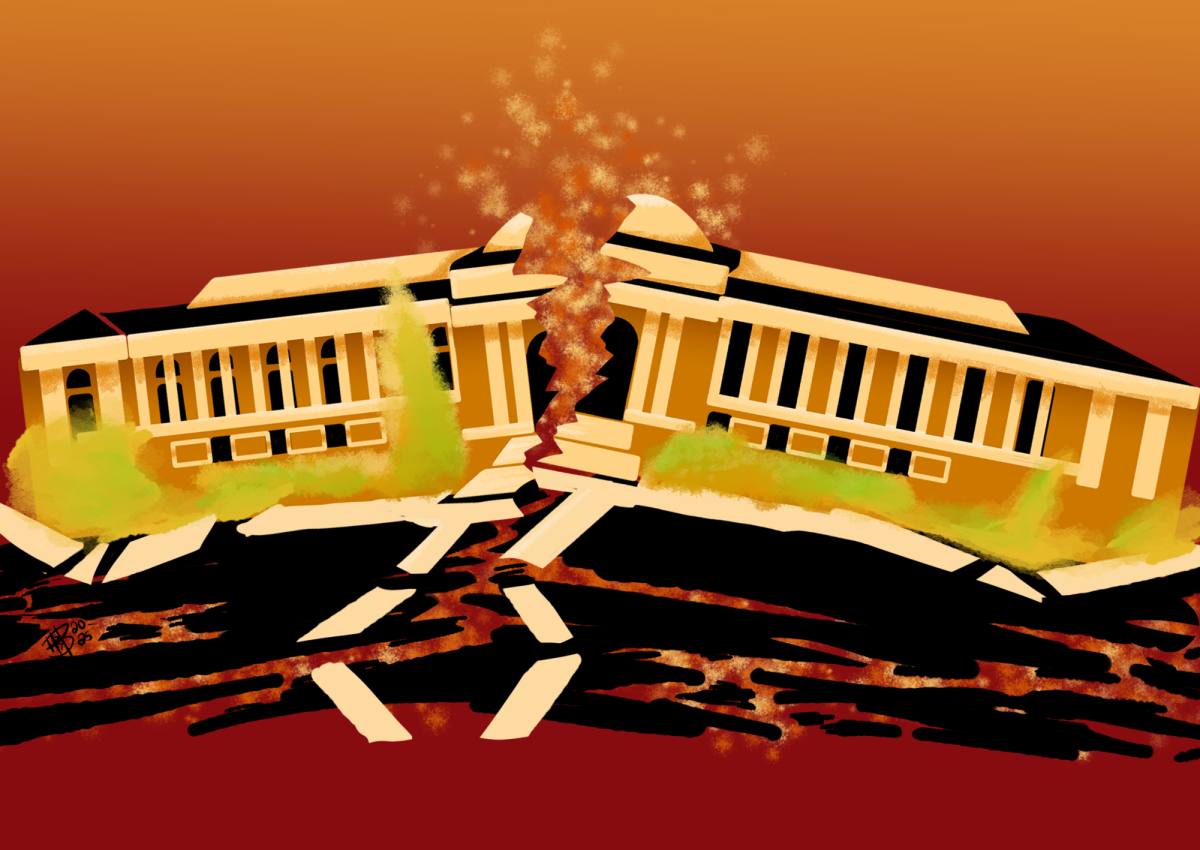Editor’s Note: This column does not represent the opinion of Beaver’s Digest. This column reflects the personal opinions of the writer.
It seems society has led us to believe that all questions about our conscious experience and the universe ought to be considered via the scientific method. This is called “Scientism.”
Do not fear, though. I have not written a crazed anti-science article or an unbridled ideological manifesto. This article merely intends to examine how science relates to philosophy, religion and all of the many questions that have been keeping humans up at night for the last 2,500 years.
To begin, I’d like to start where most “Intro to Philosophy” courses would begin: Plato’s “Allegory of the Cave.”
In this haunting parable, a group of men are chained from birth facing a wall within a secluded cave. Behind them a fire burns and lights the interior of the natural room. Between the wall they are facing and the fire behind them sits a traveled road.
They cannot see the travelers directly, but only their shadows and the shadows of the items they carry: “statues of men and other animals wrought from stone, wood and every kind of material.”
The condemned men, in an effort to better understand their situation, make attempts at naming and categorizing the shadows they see:
“In that time there were…honors, praises and prizes for the man who is sharpest at making out the things to go by, and most remembers which of them are accustomed to pass before, which after and which at the same time as others.”
This tale is far from a nonsensical work of fiction. Rather, Plato shows us that we, the human beings, happen to be the men in the cave, damned to lifetimes of unknowing.
Luckily for the doomed men of this parable, one of them gets a chance at freedom. For us, many feel our being dragged out of the cave can occur only by the quick and exciting march of scientific development.
However this scientism is quite brazen and science, rather than freeing us from the cave, seems rather to take part in the game of naming and categorizing played by the forsaken men.
Many of our most important questions go unanswered when forced to fit within the clean and unmistaken scientific method.
Questions such as: What is right and what is wrong? Does human life have any inherent value? What does it mean for something to be true? Does objective truth exist? What is the Good Life? Under what goal should I consider each and every decision I make? Is there a God? Is the material of the universe all that is or does there exist another layer to reality? How should we organize groups of people? And the most important question ever asked in the theatre: “To be, or not to be, that is the question.”
These are the questions that actually matter to our lives, that make a difference in the way we understand our short time in reality.
Applying the scientific method to any of these questions would make them seem “unanswerable.” David Hume, an English philosopher from the 18th century, even argued in his “An Enquiry Concerning Human Understanding” that such questions are “meaningless.”
The difficulty, however, with these “meaningless” questions, such as “What is right and what is wrong?” is that they have huge power and constant relevance each and every day of our lives.
For example, how could the above question be answered, or even considered, via the scientific method? “Rights” and “wrongs” are values, as opposed to facts and science is an incredibly well organized system of facts.
It very accurately, through our own artificial system of language and naming, describes a lot of what is. But it cannot make claims about what should be.
Similarly, the question “Does human life have any inherent value?” a question that holds massive weight in our lives and whose eventual verdict would have sweeping consequences, could not possibly be answered via this method.
Science can describe what we are made of, predict how our thoughts and feelings will behave and relate us physically to the natural world, but it cannot prescribe value to us remaining alive and conscious.
Another question that many have considered is that of God.
This too cannot be answered by science, especially if the “God” being considered is the typical Catholic conception: the eternal Logos that sits outside of spatial extension and time (i.e. outside of the universe).
Science can only describe and predict the works of the universe, not what does or does not exist beyond it.
Now, if we resigned our truth to the scientific method, as many people claim to do, we would end up living a radically different life.
Immediately, there would be no way to determine if any one action is right or wrong. I believe that alone is enough to recoil at the thought and at least attempt to consider things another way.
There would also be no way of knowing how to best live our lives and what actions should be chosen over any others. We would be resigned to the sad, cold and meaningless lives of the men in the cave.
However, if we understand science as what it is: an incredibly accurate tool for predicting the workings of the universe, we can leave open the possibility of answering some of these most important questions.
To conclude, I implore you to read Plato’s “Allegory of the Cave.” It is the traditional “first step” people take in philosophy and has the power to awaken a lively desire for knowledge.












